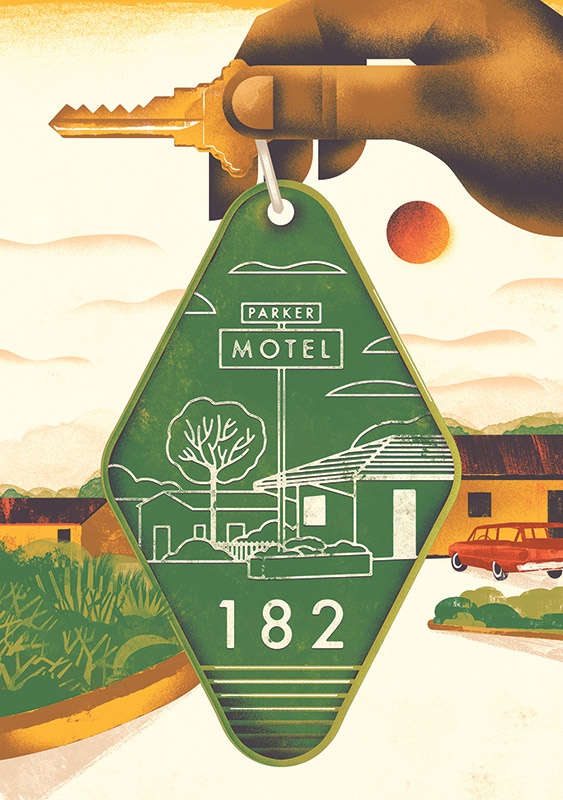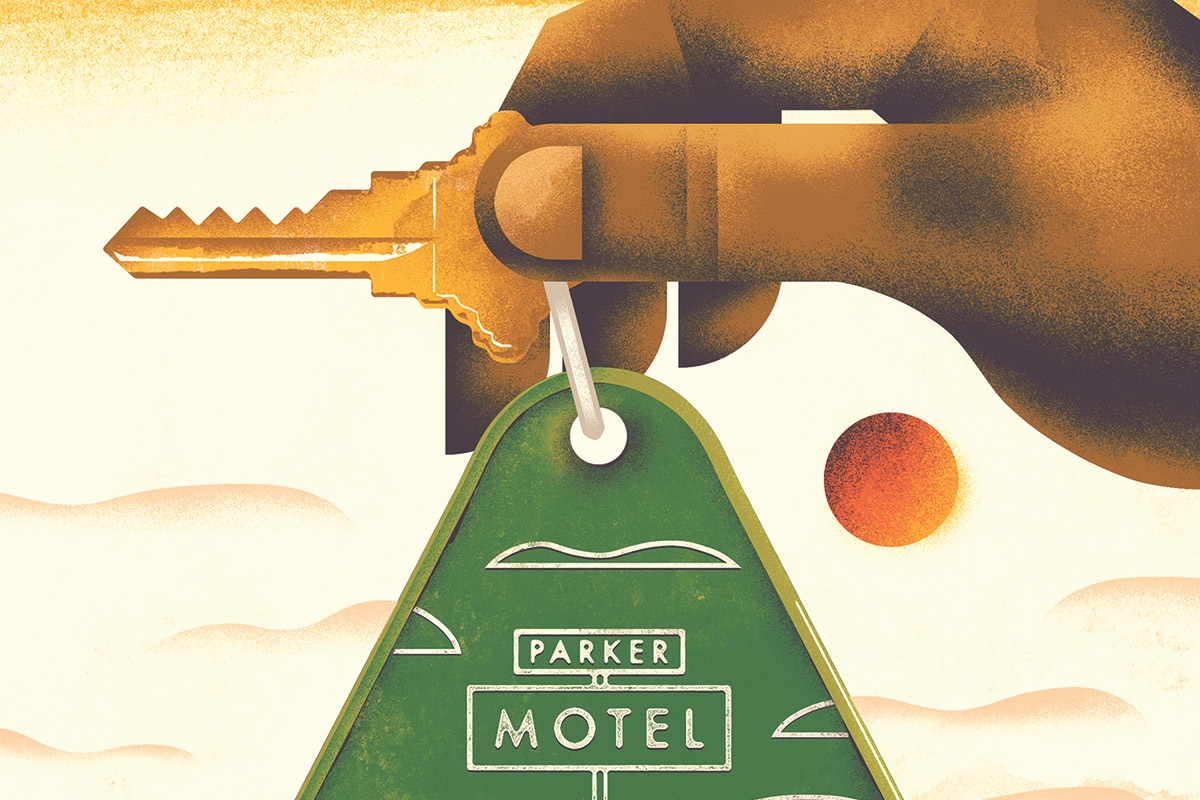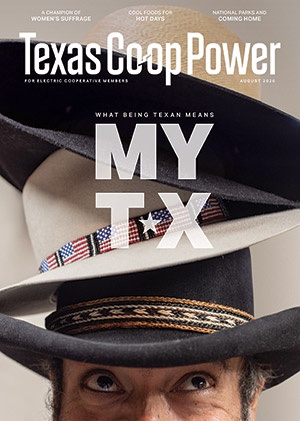Roadside motels once formed an integral part of the Texas landscape, along with historical markers, feed-and-seed stores and family picnics at rest stops. The motels’ neon signs bore the names of the small towns they occupied, nearby bodies of water or the families that owned them—Waxahachie Motel, Lake Whitney Motel, Carter Motel. Some showed a bit more ambition—Shady Shores, Fisherman’s Paradise.
Generations of Texans slept in their rooms: salesmen and truck drivers, hunters, and families on low-budget vacations. They offered a haven for those who got lost or ran behind schedule and found themselves on the road as night fell.
In the late 1950s, my grandfather bought the Parker Motel on state Highway 29, near the Lake Buchanan dam. None of us are named Parker, but he couldn’t see changing a perfectly good sign, so the Parker Motel it remained.
Since then, though, family motels have gone the way of cafés where the lady behind the counter made the pies and service stations where attendants washed your windshield and pumped your gas. I feel their absence.
My aunt and uncle ran the motel, signing in every guest and handing over a key. The office occupied half of the living room of their house, which sat between two wings of 10 rooms each. They didn’t have much privacy but never seemed to mind.
A drink machine on the porch had a narrow door that unlocked once you dropped in a coin so you could pull out an ice-cold bottle of RC, Delaware Punch or Dr Pepper. Metal chairs on the porch served as the motel lobby, and sometimes folks sat there, visiting and watching the highway.

Brave Union
This place represented country life to me, a kid growing up in Houston. It had a vegetable garden and a flock of chickens. We never ate the latter, although snakes and other critters sometimes did. Fruit trees ran the motel’s length behind the rooms, and dogs ran loose. Water came from a well and gas for hot water from a butane tank, refilled by “Hank, the butane man.” They also had a linen man who brought towels and sheets for the rooms. My aunt and uncle knew these people and took time to visit with them. My grandparents lived at the end of a row of rooms, in a trailer house with a fig tree and picnic table in the yard. They parked their Buick in the Number 20 carport except when someone rented it.
I think the motel did decent business in the ’60s and ’70s. But then people came to expect phones and cable TV, coffee in the mornings, more space. These rooms had only the bare essentials of a clean place to sleep and get ready for another day of whatever.
Mornings, my aunt watched the desk while my uncle cleaned the rooms. A wooden rack had cubbyholes for each, a white registration card in those with occupants, a key in the others. A hodgepodge of alarm clocks occupied a shelf behind the desk, the roadside motel equivalent of a wake-up call. Free Parker Motel postcards and matchbooks sat on the desk.
The lake had convinced my grandfather that the motel made a good investment. My cousin and I sometimes walked across the highway to a little beach to swim. Grandpa owned an assortment of boats through the years, always secondhand and usually with some problem or another. If his current boat started, we’d run trotlines that mostly caught catfish. If not, we’d cast lines from a pier.
I once thought my aunt and uncle were trapped at the Parker Motel, unable to leave because they couldn’t just close up for the day. I don’t think they saw it that way. A lot of the world came through their front door; they didn’t need to go anywhere. Even if they wanted to, they would never have complained—grateful to have work, even the hard kind. A roof over their head and food on the table represented success, as did sacrificing to send their kids to college so they could do better.
Everyone is gone now. The place sold but is still there with a new name and kitchenettes where carports used to be. The graves of my grandparents and aunt and uncle occupy a slope at the back of a Llano cemetery, overlooking the Hill Country.
The last time I visited, great big sunflowers bloomed along the fence. It’s not a bad spot. Neither was the Parker Motel.
Read more of Melissa Gaskill’s work at melissagaskill.blogspot.com.


